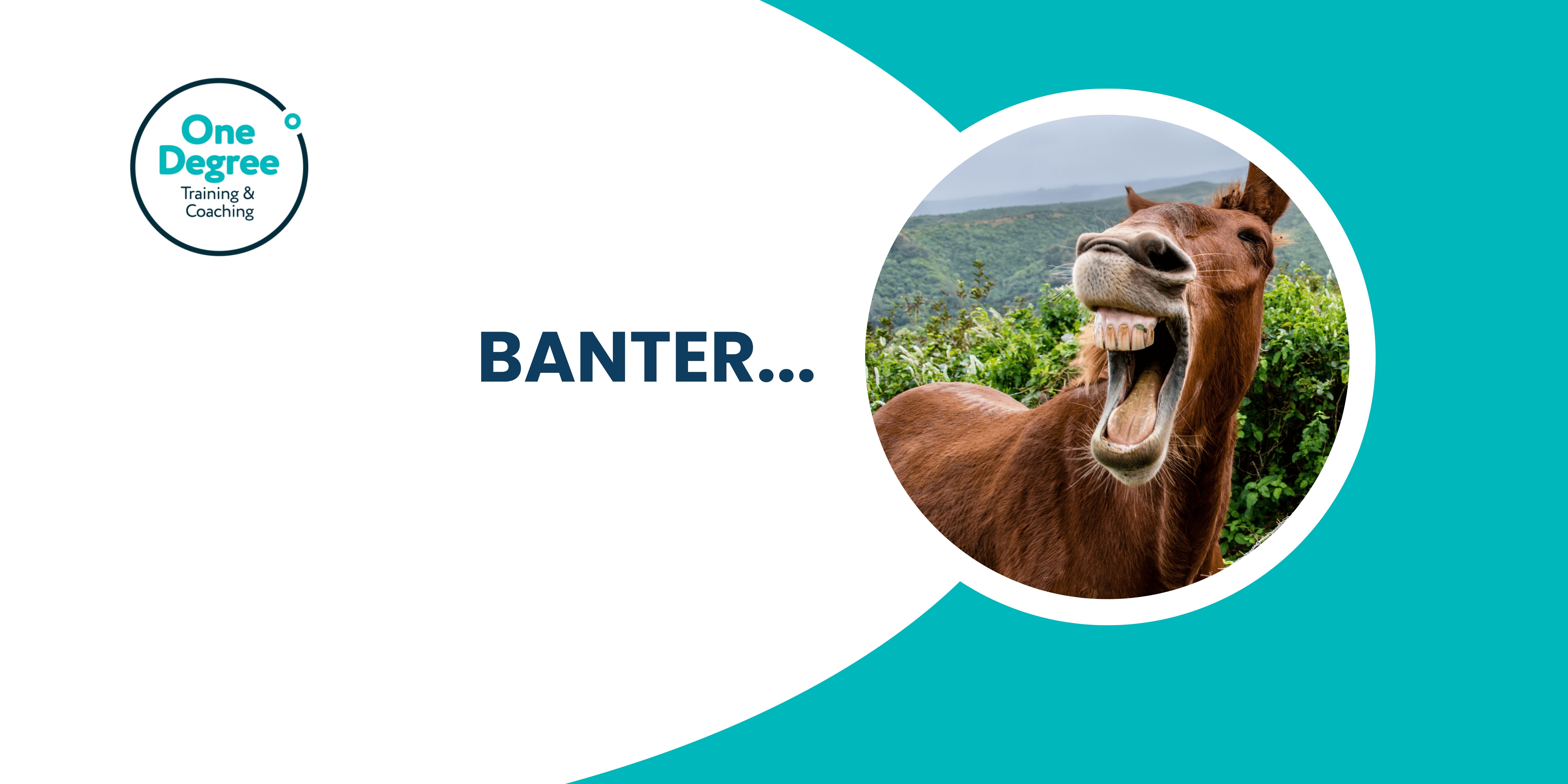When is banter not banter?
Back in 2001, I worked in a great office. The work was important and engaging, the team were great. Morale was high, and we performed brilliantly.
One of the main reasons behind the this was the banter. We all took the mickey
out of each other and had the mickey taken out of us.
There was a white board on the wall, with a section for each person – it was for
messages, tasks, notes, etc. It had our names, and there was a picture to
represent each person.
Mine had 2 – Shrek and Sloth from the Goonies, because let’s be honest, at
certain angles I look like their illegitimate love child! (But hey, my mum thinks I’m
handsome!)
To me, this was good banter. I’d been called worse – my surname is Serbian, and
I joined the RAF while we were bombing Serbia, so you can only imagine!
One day, I entered the office to see my picture had been replaced with one of
Slobodan Milosevic. This wasn’t good banter – it angered me. To the credit of the
guy who did it, he admitted it, apologised, and replaced it. We carried on being
friends, and moved on.
The reason I’m sharing this is I hear many stories about companies feeling the
need to stifle banter for fear of people being insulted and it going too far. It was a
subject that was raised during my Wellbeing Awareness masterclass last week. I
asked the group, who were a mix of Gen X, Millennial, and Gen Z, how they’d
feel if banter wasn’t allowed in the workplace, 100% of them stated they’d hate it.
There is no simple solution, humour is subjective. Someone might happily accept
really insulting jokes, where someone else might find offence. Neither is right or
wrong, it’s their subjective opinion. Here are 2 simple metrics to see if your
company has got it right.
- Is the banter to their face or behind their back? Banter is only banter if it’s
a 2-way street. If the jokes are behind someone’s back then they’re flirting
with bullying. When this goes unchallenged, there’s real risk. - If the line is crossed, does the person feel able to challenge it? True banter
has no malicious intent behind it. Human Beings make mistakes, that
means lines will get crossed. When that happens, if the victim is able to
challenge, say that’s no ok, and the perpetrator readily apologizes, then
you know you’ve created an inclusive and safe environment. If they’re not,
you’re at risk of something going horribly wrong, plus all the other pitfalls of
a psychologically unsafe environment.
How are things at your workplace? Are people able to laugh and joke with each
other? Are they able to challenge when things go too far? Or, do they suffer in
silence before things get too much for them?
One Degree Training & Coaching Ltd are leadership development specialists for
SMEs. We will give your managers the ability to judge whether banter is just that, the
confidence to hold to account those who cross the line, and the wherewithal to
professionally deal with those people who claim banter, but don’t mean it.
https://onedegree.uk
info@onedegree.uk
07737 194 852





